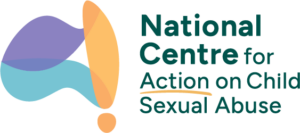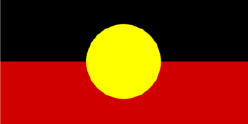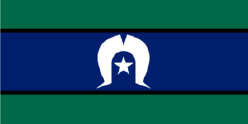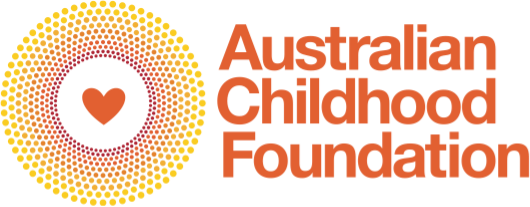19 May 2025 is World Family Doctor Day. The National Centre recognises the significant role of General Practitioners in providing whole person care to victims and survivors of sexual violence, including child sexual abuse.
General Practitioners are often the first point of contact for victims and survivors and can support a pathway towards healing and recovery. The importance of holistic care is highlighted by the Australian Society of Psychological Medicine (ASPM). The National Centre has collaborated with President of ASPM and founder of Ducks in a Row Training Dr Naomi Rutten, a GP and Psychotherapist, to explore how General Practitioners can provide whole person care.
The National Centre acknowledges the contributions of Angela Obradovic and Dr Cathy Kezelman in the development of this blog.
Whole person care
Adults who were sexually abused in childhood often have ongoing physical and mental health challenges, such as chronic pain, sleep problems and impacts on their overall wellbeing. It is imperative these presentations are explored with holistic curiosity, as many adults may never disclose what happened to them.
One of the most important things a General Practitioner can do is to ‘acknowledge suffering and offer hope’, which is a key theme of World Family Doctor Day this year.
“Working in this field is one of the most rewarding things that I can imagine doing. It is enormously challenging in many ways as we are still learning so much about the impact of abuse in childhood and how to support and help them heal in the most holistic way possible” – Dr Naomi Rutten.
Dr Naomi Rutten’s areas of interest and expertise is developmental and complex trauma, in addition to complex behaviour disorders. She highlights the importance of support, care and building a relationship over time:
“One of the things that attracted me to General Practice was the longitudinal care that we provide our patients. This is something that is prominent in the care of those who have experienced childhood abuse. The complexity of their physical and psychological health impacts is broad and no two individuals present in the same way. And yet, there are many overlaps in the way they present and the challenges they face. As a result, support and care for these patients takes adequate time. Time to build a relationship, time to help them learn to trust you, time to help them learn to connect with their mind and their bodies in a safe way. It is through this journey that those small steps of growth become so immensely rewarding, for the patient and for myself”.
General Practitioners support children and adults every day who have had adverse childhood experiences due to trauma. Dr Naomi Rutten highlights skills that can support whole person care, such as providing a safe space, listening, and responding compassionately without judgement:
“Acknowledge their experience because no matter what the ‘truth’, what they are recalling is their truth and their experience. We, as the practitioner, do not need to ‘fix’ things for them. They are not ‘broken’. The effects can be significant and impact their day-to-day function, but for some, they are content in their level of function and just want their story heard. Others may want or require psychological and medical support, and this can be suggested and offered when you deem appropriate, but it is up to the patient to decide when they are ready for those steps”.
These skills form part of a trauma-informed response, focusing on the following areasi:

The National Centre has produced practical trauma-informed support and guidance tools for General Practitioners engaging children and adults who have been impacted by child sexual abuse. These resources focus on how individual practitioners can improve engagement and enhance health outcomes through creating a supportive and safe experience for victim-survivors of child sexual abuse, and provide tips on how to consider the physical, social and online environment to create safer spaces for everyone.
- Strengthening General Practitioner responses to child sexual abuse in primary health care
- Practice Prompts for Primary Health Care
- Create Safer Spaces in Primary Health Care
What about General Practitioners who are victims and survivors themselves?
The national prevalence of child sexual abuse in the general population in Australia is 28.5%ii. Based on this statistic alone, it is reasonable to suggest a high proportion of the General Practitioner workforce have their own lived experience of child sexual abuse themselves or within their families.
“My journey, my knowledge and my experience of healing, helps provide hope to my patients. They can see that there is hope that they too can obtain healing. Hope is invaluable” – Dr Naomi Rutten.
Dr Naomi Rutten shares her experience:
“As someone who has lived experience of abuse in childhood, working in this field has been a journey. I suspect I drew these clients to me, as I was able to provide an insight and empathy that others cannot. In exploring, learning and studying this field, it has been essential that I explore and treat my own trauma. My experience provides me an empathic insight, it is true, but in doing so, the risk is that it may activate underlying injury within me. I have spent decades undertaking different forms of therapy and am proud to say my trauma is healed. Although never undone, I am able to sit with my experiences with calmness and compassion. This is yet another gift that I can provide my patients, hope”.
Findings from the National Centre’s Community Attitudes Study suggest people believe child sexual abuse is a private matter not to be discussed, that it is shameful to talk about, and doing so violates societal norms and beliefsiii. These attitudes and beliefs can be a significant barrier to adverse childhood experiences being shared, not only for patients but also for General Practitioners with a lived experience of child sexual abuse.
Dr Naomi Rutten discussed the importance of personal reflection and therapeutic support within self-care, and there are many additional methods that can be implemented at an individual level. Many self-care activities can be completed in isolation, however there are others that focus on connection.
The RACGP white book provides guidance on self-compassion which invites:
- self-kindness, rather than self-judgement
- an awareness of a common human fragility, rather than suffering in isolation
- acknowledging difficult thoughts and emotions, rather than over-identifying with themiv
Connection and reducing isolation can support the wellbeing of General Practitioners in a variety of ways, including the ability to talk with others about the impact the work has on you, joining peer support groups such as a Balint group, or finding a mentor to share your experiences withv. Further information on additional ways to support self-care can be found here.
Support is crucial for the wellbeing of General Practitioners
General Practitioners face increasing challenges as a workforce. In 2024 it was reported that 60 percent of General Practitioners were concerned about being undervalued, managing their workload and the awareness of community supports available. Additionally, 43 percent of General Practitioners reported experiences of burnout, high workload and empathy/compassion fatiguevi, with increased rates of vicarious trauma and burnout for health professionals who have a similar background to the area in which they are workingvii. These concerns, alongside daily experiences of hearing about trauma and abuse, highlight the importance of supporting General Practitioners.
Self-care for a General Practitioner is highly individual, and it may take time to discover what works best for you. As Dr Naomi Rutten describes below, it may be a combination of strategies that can be implemented across various domains.
“As I continue to work in this field, the most important rule is to ensure that I stay well. I will not be able to provide the support and care my patients need if I am not well. As a result, I see my Psychotherapist Mentor and my GP Supervisor both monthly. I remain connected with my peers through groups such as the Australian Society for Psychological Medicine and closed Facebook groups. These things, as well as my close friends and family, ensure that I remain as well as I can be and is essential to my ability to continue to provide the work that I do”.
Would you like more information on self-care and wellbeing for General Practitioners?
- Royal Australian College of General Practitioners (RACGP): Information and advice on support for General Practitioners to decrease risk of compassion fatigue, burnout and vicarious trauma can be accessed under resources on the RACGP website.
- Australian Society of Psychological Medicine (ASPM): Information and advice on support for General Practitioners in a range of formats, including exercise, clinical reflective practice, and helplines, can be accessed under resources on the ASPM website.
- DRS4DRS: Information and advice on support for General Practitioners, including health related resources can be accessed under resources on the DRS4DRS website.
References:
i Applying Trauma-Informed Principles to Conversations About Trauma accessed 8 May 2025
ii The Australian Child Maltreatment Study (ACMS) accessed 1 May 2025
iii The Australian child sexual abuse attitudes, knowledge and response study – The National Centre for Action on Child Sexual Abuse accessed 1 May 2025
iv RACGP – Keeping the health professional safe and healthy: Clinician support and self-care accessed 1 May 2025
v RACGP – Keeping the health professional safe and healthy: Clinician support and self-care accessed 9 May 2025
vi RACGP – General Practice: Health of the Nation accessed 1 May 2025
vii RACGP – Keeping the health professional safe and healthy: Clinician support and self-care accessed 9 May 2025








